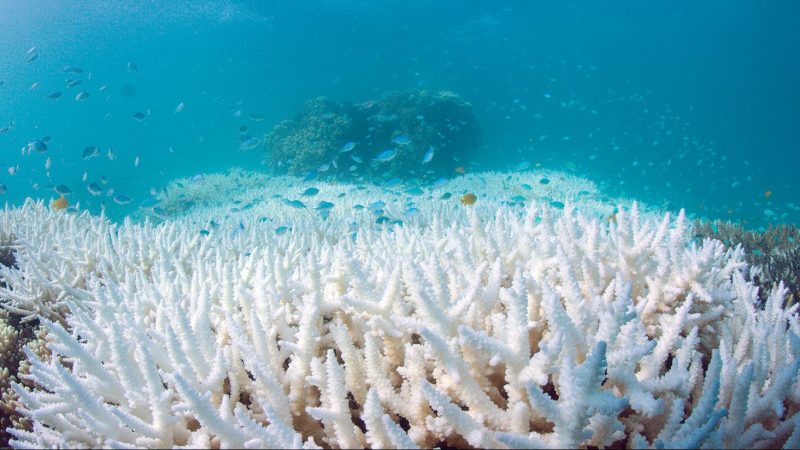
The Great Barrier Reef is in the midst of its worst-ever year of bleaching and, according to Science Magazine, scientists now say the odds of its survival are slim unless major steps are taken to combat climate change.
“Immediate global action to curb future warming is essential to secure a future for coral reefs,” concluded a team of researchers led by Terry Hughes, a coral reef ecologist at James Cook University in Townsville, Australia.
The alarming report comes on the heels of news that for the second consecutive year the world’s largest reef is experiencing severe bleaching, a coral-killing phenomenon caused by a rise in water temperatures. This marks the first time in history bleaching has been recorded in back-to-back years, according to the Australian government.
In 2016, 85% of the 15,500-mile-long reef was harmed by bleaching. Comparing the latest data to major bleaching events in 1998 and 2002, the research group assessed how the reef—the single largest structure made by living organisms on the planet—could recover in a new study published in Nature.
Even more ominous, the latest findings disproved a previously held belief that cleaner water, which is essential for healthy coral, mitigates the harmful effects of rising ocean temperatures.
—RealClearLife
This article was featured in the InsideHook newsletter. Sign up now.